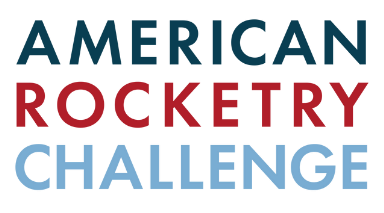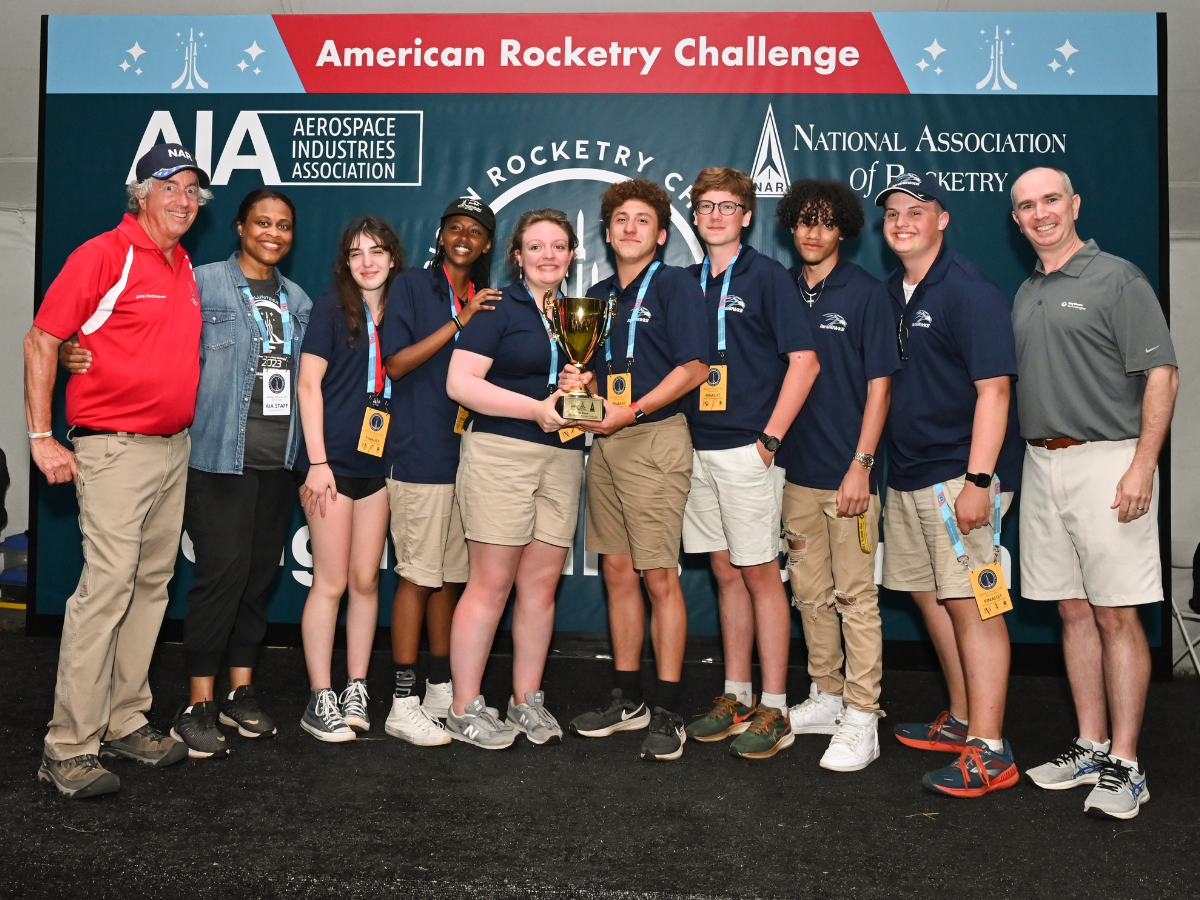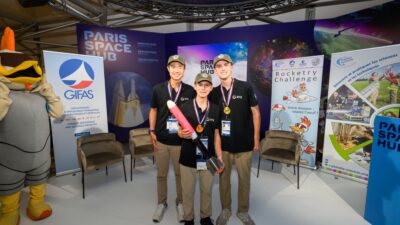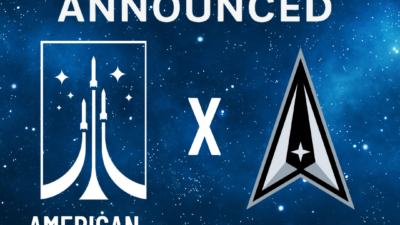Hardin Valley Academy Team 1 tops among 100 teams competing in National Finals and the nearly 800 that entered the 2023 American Rocketry Challenge
The Plains, Va. – Hardin Valley Academy Team 1 from Knoxville, Tenn. today were crowned National Champion at the world’s largest student rocketry competition – the American Rocketry Challenge. Hardin Valley Academy Team 1 had the best score of 100 teams from across the country competing at the National Finals, which took place at Great Meadow in The Plains, Va.
In total, more than 4,500 students from nearly 800 teams in 45 states entered the 2023 competition. The Hardin Valley Academy students earned $20,000 for their achievements and will now represent the United States at the International Rocketry Challenge taking place at the Paris Air Show in June.
“We didn’t expect to make it this far, but this is an amazing feeling, said Hardin Valley Academy Team 1 captain Zaen Grissino-Mayer. “I’ve always had a love of rocketry, but it was [team advisor] Mr. Smyrl who encouraged us to form a team and enter the American Rocketry Challenge. We’ve grown as a team along the way, and we wouldn’t have won today without a full team effort. We spent our spare time and even worked on the weekends to become better rocketeers. We are thrilled and can’t wait to represent the U.S. at the International Finals in Paris.”
This is Hardin Valley Academy’s first year competing in the American Rocketry Challenge. In addition to Grissino-Mayer (age 16), members of the winning team include Halley Dandona (17), Henry Harvey (16), Bailey Mounts (16), Caleb Mulder (16), Kahlil Ortiz (16), and Otilia Scolnic (16). The tenth place team in this year’s contest was also a team from Hardin Valley Academy.
“Congratulations to this year’s American Rocketry Challenge competitors and winners,” said Greg Hayes, Chairman and CEO of Raytheon Technologies. “Watching these students strategize, plan, build, and adjust to uncontrollable variables while fine tuning their performance is truly inspiring. These skills are critically needed in the next-generation aerospace and defense workforce to redefine how we connect and protect our world. We look forward to seeing what they accomplish in continuing their education and into their careers.”
The team’s victory follows months of preparation designing, building, and testing a rocket capable of meeting rigorous mission parameters set by the contest’s sponsors – the Aerospace Industries Association (AIA), National Association of Rocketry, and more than 20 industry partners. To qualify for the finals, each team designed, built, and launched a model rocket that safely carries one large hen egg to an altitude of 850 feet, stays airborne for between 42 and 45 seconds, and returns the rocket to the ground safely. Adding to the challenge, the rocket must be built in two parts that separate after apogee and land with their own parachutes; one section of the rocket must contain the egg and altimeter, and the second the rocket motor(s).
At the National Finals, a Friday night coin flip determined that competing teams had to launch the rockets to 875 feet with a flight duration of 43-46 seconds in the first round of competition. The top 42 teams conducted a second launch that was required to reach 825 feet with a flight duration of 41-44 seconds
“If today’s results are any indication, the future is bright for American science and engineering,” said Eric Fanning, President and CEO of AIA. “Hardin Valley Academy’s hard work, creativity, and mastery of science and math separated them from a talented field at the National Finals. I have no doubt that the 2023 American Rocketry Challenge is the first of many academic and professional achievements for all participants. We look forward to Hardin Valley Academy bringing the International championship back to the U.S. this June.”
Teams at the National Finals represented 27 states from Alaska to Florida and competed for a total of $100,000 in prize money and scholarships, split among the Top 10 teams and winners of the Marketing Competition, Presentation Competition, and Best First-Time Finalist. In addition, the top 25 finishers receive an invitation to participate in NASA’s Student Launch initiative to continue their exploration of rocketry with high-powered rockets and challenging mission parameters.
AIA recently signed a Space Act Agreement with NASA to inspire the next generation of aerospace and STEM professionals. The agreement will enable AIA to expand upon the American Rocketry Challenge program to create opportunities that broaden student participation in aerospace and provide connections to NASA’s Artemis program and other NASA missions.
As participants launched their rockets on Saturday, an American Rocketry Challenge alumnus was circling above them in space. NASA astronaut Warren “Woody” Hoburg competed in the National Finals of the inaugural American Rocketry Challenge in 2003. Twenty years later, in March 2023, Hoburg blasted off to space as the Pilot of NASA’s SpaceX Crew-6 mission to the International Space Station (ISS). Hoburg provided a video message while aboard the ISS to congratulate and encourage the National Finalists.
On Friday, for the first time since 2019, some of the National Finalists participated in “Rockets on the Hill.” The reception gave students an opportunity to bring their rockets to Capitol Hill and discuss their achievements with members of Congress, congressional staff, and other government officials.
Now in its 21st year, the American Rocketry Challenge has inspired nearly 90,000 middle and high school students to date to explore education and careers in STEM fields. For more information and content, check out #RocketChallenge on Twitter and Instagram pages. You can also learn more about many of the National Finalists in the “In the News” section of the American Rocketry Challenge’s website.
###




